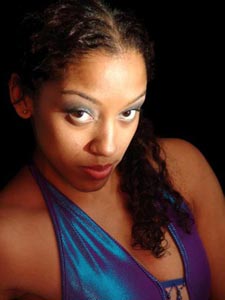Quotes of the Month
QUOTES OF THE MONTH:
Johnny Polanco: I never went to school (for music), I never had a formal lesson. I was adopting instruments and then playing them. I would buy instruments from the streets; One time I purchased an instrument from a drug addict, it cost me $10.00, then I made music from the instrument.It is very rewarding when you perform. The music that I play I like it to be danceable. Dancers are creative people and I like to feed that. I always watch the movement on the dance floor.
Victor Mayovanex: When I decided to form my own dance company, I noticed that even though everyone was good at the time something was missing. I felt personality was missing, which explains the origin of Karisma (Spanish for Charisma). “Karisma” was the not just the attribute I wanted to express on the stage, but it was also the quality that I thought was missing from the scene. “Karisma” was meant to represent the details from the clothes we wore, to our elegance and potentially to our performances. Therefore, our goal when we are on the stage and everything that is executed on the stage is just simply Charismatic.
Mr. Marchant Birch: I don’t even know what I will be doing in 5 years time, but I would like everyone to experience dancing in such way where they hit that zone or Dynamic equanimity. It’s a feeling of Oneness where you, your partner and the music becomes one and rhythm is the glue to unify all three. You can’t even feel where your body ends and your partners body begins, you don’t even know if you are leading or following because everything is one. In that state, no forceful leading is necessary, you are both just flowing, and the energy is just flowing. I’m not even sure if the brain gets involved because the brain can get in the way of feeling. That is what I wish for everyone to experience.
Ms. Erika Occhipinti: To be an excellent instructor requires a lot more than just being a good dancer. Sometimes the best dancers are terrible instructors, and the best instructors aren’t always the most impressive dancers on the floor. Since the salsa world doesn’t have a standardized curriculum or certification program like other styles of dance, pretty much anyone can call themselves an instructor, which is unfortunate. I’m not saying we should have that standardization, because I think the very thing that attracts so many people to salsa is its “street” style and lack of strict rules, but it does make it difficult for beginners to know if their instructor is any good.
Mr. Eddy Deynes: Hesitant at first, my decision to teach came full circle when I picked up a friend at a dance studio. Waiting for her to finish her class, I noticed that someone was teaching a private lesson. As I watched the instructor teach what he called Salsa, I found out he was charging the student $100 an hour. The funny thing was that he wasn’t teaching salsa. He was teaching cumbia to salsa music. Shocked and upset that he would hustle someone $100, I decided right then it was time for me to teach. I was like, “I can’t believe this!!! I will teach people salsa the right way and for a reasonable price.” So, that is how I started to teach salsa.


Leave a comment